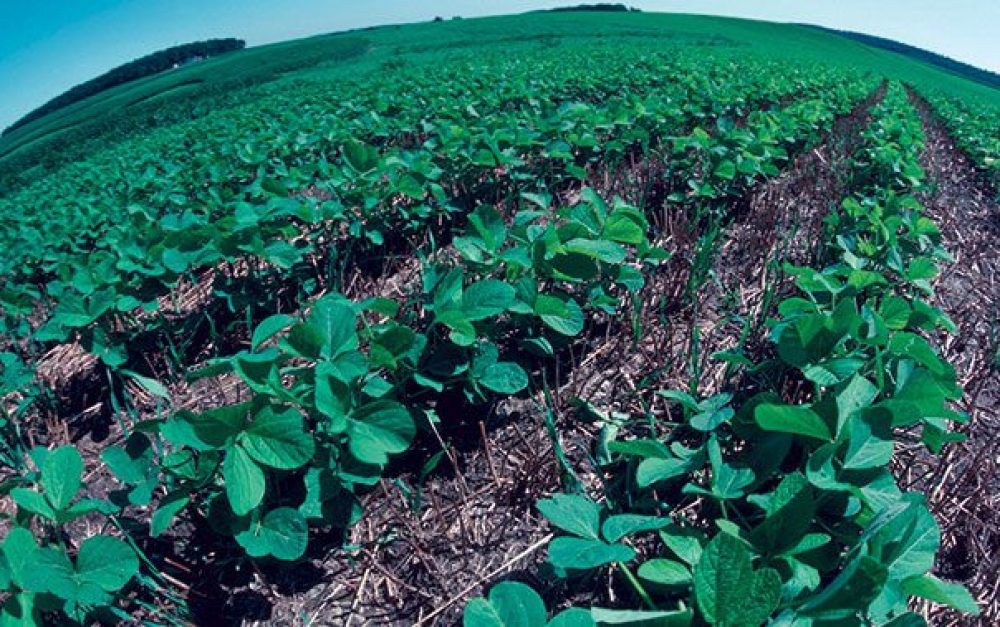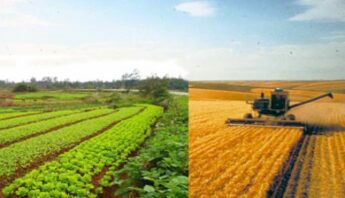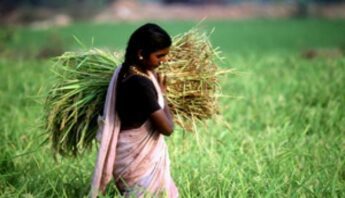Organic farmers who use agroecological practices build healthy soil, conserve water, protect pollinators and keep the air and water clear of harmful pesticides. We owe them thanks for this. They also produce bountiful crops.
Yesterday, these hard-working farmers received an important boost of recognition from the scientific community with the release of findings from a major new study comparing the productivity of organic and conventional farming.
Published in the prestigious journal, Proceedings of the Royal Society of London, the exhaustive meta-analysis by researchers at the University of California, Berkeley found that the so-called “yield gap” between organic and conventional is far smaller than previously thought.
For organic farmers who diversify their farms with the agroecological practices of multiple cropping and crop rotation, the “gap” shrinks to less than 10%. And for some crops (oats, tomatoes and apples, for example), there were no yield differences at all. As Claire Kremen, study author and UC Berkeley professor, put it:
This paper sets the record straight on the comparison between organic and conventional agriculture… Increasing the proportion of agriculture that uses sustainable, organic methods of farming is not a choice, it’s a necessity. We simply can’t continue to produce food far into the future without taking care of our soils, water and biodiversity.
Digging into the data
The authors examined 115 field studies from 38 countries covering 52 crop species — a dataset three times the size of previously published work — and employed a more rigorous and precise method of statistical analysis (detailed in a 50-page supplement) than studies to date. In so doing, they were able to correct for the kind of measurement errors that led authors of a previous study, published in Nature in 2012, to overestimate differences in productivity between conventional and organic farming.
I was glad to see the good news about organic farming’s productivity. At the same time, it’s critical for us to realize that one of the most important factors affecting productivity in this study was whether farmers incorporated agroecological management practices or not. This is one reason why industrial-scale monocropped organic farm operations — while certainly less toxic than chemical-intensive conventional agriculture — still do not achieve the same rich and complex benefits of ecologically diversified farming.
One immediate lesson for policymakers is where to put their (our?) money. As the study’s lead author, Lauren Ponisio, explained,
“Simply by increasing investment for agroecological research — for example, to improve organic management and to develop seeds for organic farming systems — we could greatly reduce the remaining yield gap, and even eliminate it entirely for some crops and regions.”
Historically, less than 2% of USDA funding has gone towards organic research — and even less towards agroecological research. Redirecting investments towards agroecology could bring “big payoffs,” the authors point out.
Addressing hunger
But what about implications for global food production overall? We know that ultimately hunger and malnutrition are not matters of scarce production, but have everything to do with poverty, inequitable access to food, imbalanced distribution, unfair trade policies, land and resource grabs, and badly misguided “aid” and development interventions that destroy local food systems.
Kremen agreed: “It’s critical to put this yield gap discussion in context.” Noting that “our current agricultural system produces far more food than is needed to provide for everyone on the planet,” she emphasized that simply increasing yields is not the answer. “For one thing,” she said, “global food waste alone is 30-40% per year.”
If we could cut food waste by half, Kremen explained, that would go a very long way towards addressing food production concerns. Meanwhile, we should also focus our efforts on reducing the harmful impacts of industrial agriculture and building the resilient agroecological farming systems that we urgently need.
Another agroecosystem is possible
What we’re talking about here, really, is a meaningful and world-wide transition to agroecological farming. As I recently explained after returning from FAO’s first-ever International Symposium on Agroecology in Rome, agroecology is the way of the future. And much of the rest of the world is already on its way there, most often led by peasant farmers melding rich traditions of Indigenous knowledge with cutting edge ecological science.
Now just take a moment and imagine what the U.S. food system would look like if policymakers in Congress, at USDA and in our land-grant universities actually stopped taking money from Big Ag and the pesticide industry lobby — and really thought long and hard about what this all means. What if we really got serious about investing in biodiverse, ecological agriculture, as the UC researchers suggest we must?
This is an approach the renowned International Assessment of Agricultural Knowledge, Science and Technology for Development urged us to take. Meanwhile, family farmers, engaged scientists and social movements in Latin America, Asia and Africa are already making great strides in that direction.
If we follow suit, we might well end up with a U.S. farming system that produces plenty of fresh, nutritious food. It could enable us to get off the pesticide treadmill once and for all, thereby protecting the health of rural communities and farmworkers. And our farms would be far more ecologically resilient and productive in the face of climate change, drought and other environmental stresses. That would be a worthy result, indeed — supporting empowered, healthy communities around the globe.
Photo | Tim McCabe, USDA Natural Resources Conservation Service








